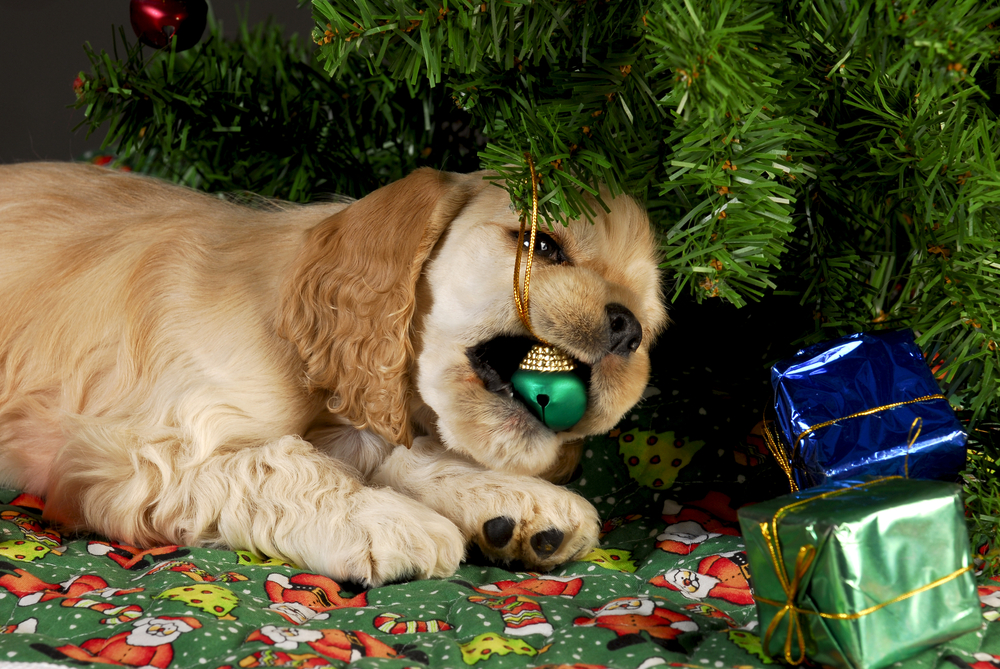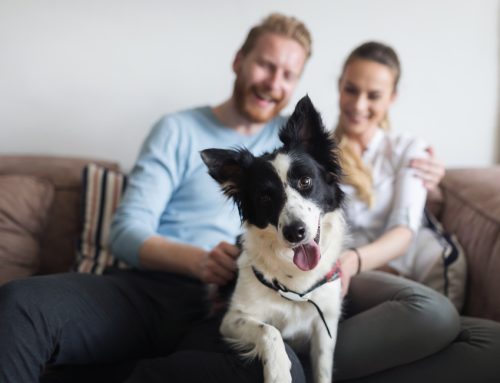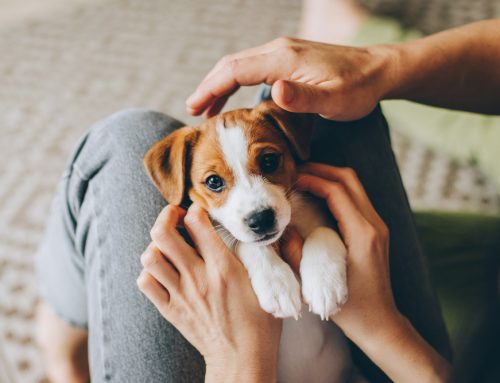Puppies can be a handful, and while some seem to fit in and naturally understand your expectations, others see the world as their playground. No matter your puppy type, patience, consistency, a sense of humor, a gentle hand, and this guide from WesVet Animal Hospital are key to surviving puppyhood.
Understanding your puppy and setting them up for success
Behaviors that we see as problematic (e.g., chewing, barking, jumping up) are completely normal for puppies exploring their world. They are constantly learning through action and consequence. A behavior that is reinforced—such as stealing food from the counter leading to a tasty snack—they will repeat.
Take advantage of your puppy’s natural learning style by reinforcing good behavior with treats and praise, and managing their environment to prevent opportunities for wrongdoing. Use a crate, pen, and baby gates to confine your puppy when they cannot be directly supervised by an adult.
Here are preventive approaches to the five most common puppy problem behaviors:
#1: House training your puppy
Crate training is the best and fastest method for house training a puppy. Confining your puppy during rest and when you cannot supervise them prevents accidents, and helps them learn bladder control.
- What to do — Consistency is key to housetraining—take your puppy outside on a leash at specific times, including:
- When they wake up
- After they eat
- After play
- Before allowing any house or play privileges (i.e., you have an “empty puppy” before letting them play outside their confinement area)
Take your puppy to your designated potty spot, gently give your potty cue, and wait. Praise calmly, or reward them with a treat when they eliminate. If they do not go in five minutes, return them to their crate or pen, and try again in 10 to 15 minutes.
Watch your puppy closely during play to learn their signals. If your puppy wanders away from the action, begins sniffing the floor, or circles around, take them immediately outside.
#2: If your puppy jumps up
Puppies jump up from excitement and overstimulation, and are reinforced when they receive a dramatic reaction. When people respond by cheering and encouraging, or shrieking in abject horror, the puppy can’t wait to repeat the behavior.
- What to do — If your puppy jumps up, calmly turn away. The moment your puppy returns to the floor, toss them a treat between their front feet. Only greet your puppy when they are seated or maintaining a four-on-the-floor stance. If your puppy jumps during play, follow the same procedure, and only re-initiate the game when the jumping stops.
#3: If your puppy chews inappropriately
Puppies chew for several reasons—to explore their world, soothe painful gums during teething, and relieve boredom. Restricting your puppy to a pen or on leash in the home can prevent most unwanted chewing, which surges between 3 and 6 months of age, when immature teeth are replaced by adult teeth.
- What to do — Providing appropriate chew toys, such as edible teething rings and frozen rubber toys, can help your puppy learn acceptable chewing behavior, and relieve their discomfort.
#4: If your puppy nips or play bites
If you watch two puppies play, you’ll see a lot of biting. When one puppy bites the other too hard, the bitten puppy shrieks, and the game is paused. Natural bite inhibition teaches puppies to control their mouth pressure when biting or playing.
Puppies love to nibble and chew on fingers and hands—after all, that’s what they see reaching for their adorable faces all day long!
- What to do — While gentle nibbling is OK, if your puppy bites too hard, do not jerk your hand away. Instead, make a yelping sound, pause the game, and count to five. When you resume, offer your puppy a toy. If the biting persists, calmly take your puppy to their crate for a break. To minimize play biting, never tease your puppy with your hands (e.g., wiggle your fingers or jerk them away like prey).
Continuously supervise children while they interact with puppies.
#5: If your puppy has too much energy
Puppy energy can seem limitless, especially at the end of a busy day when you want to wind down.
-
- What to do — Consistent physical and mental exercise will satisfy your puppy and decrease late night power surges. Your puppy’s daily routine should include:
- Age-appropriate physical exercise — Short, slow leash walks with lots of breaks are fine, but avoid repetitive exercise and jumping, which can damage developing bones.
- Enrichment games — Introduce puzzle toys and food-stuffed rubber toys, to encourage your puppy to think for their food.
- Training — Attend a positive-reinforcement-based training class. Learning is exhausting!
- What to do — Consistent physical and mental exercise will satisfy your puppy and decrease late night power surges. Your puppy’s daily routine should include:
When your puppy does something wrong

The perfect puppy does not exist, so don’t be frustrated if yours misbehaves.
- What to do — Respond calmly, and remove your puppy from the situation. Never punish by yelling or physically correcting them, which only teaches them how to avoid punishment, not how to behave, and may lead to anxiety and aggression.
Help your puppy become the confident and well-behaved dog they’re meant to be by setting them up for success right from the start. When you are clear, consistent, and positive with your reinforcement, your puppy will look for opportunities to earn rewards from you rather than from the environment. For questions about your puppy’s behavior, contact WesVet Animal Hospital.







Leave A Comment